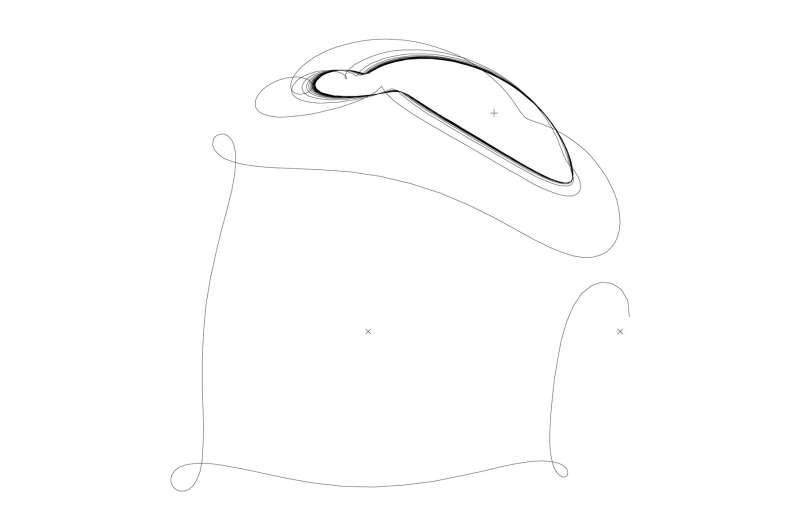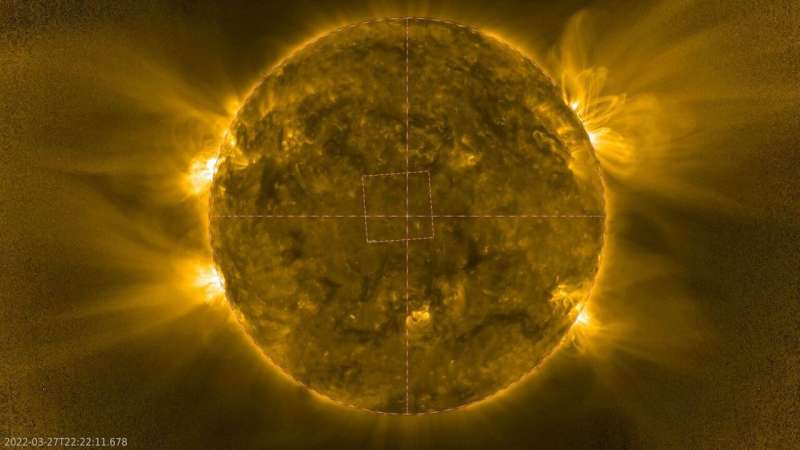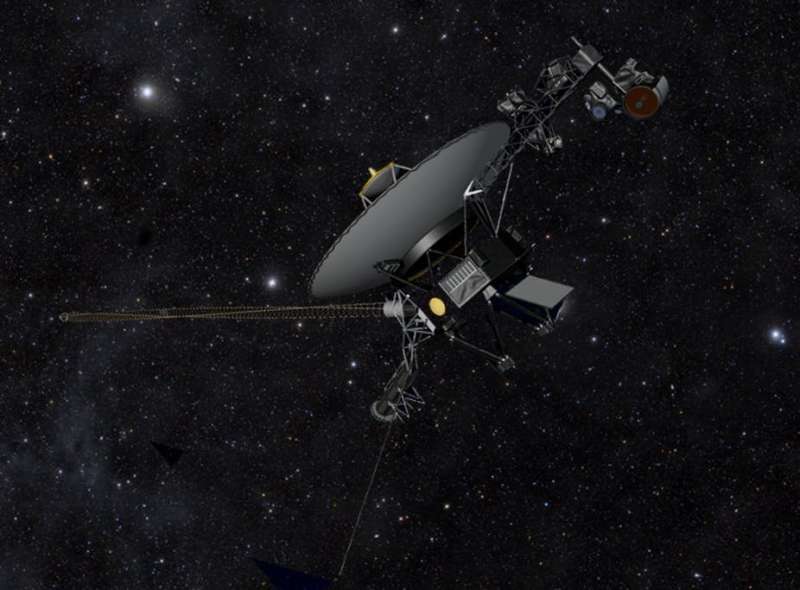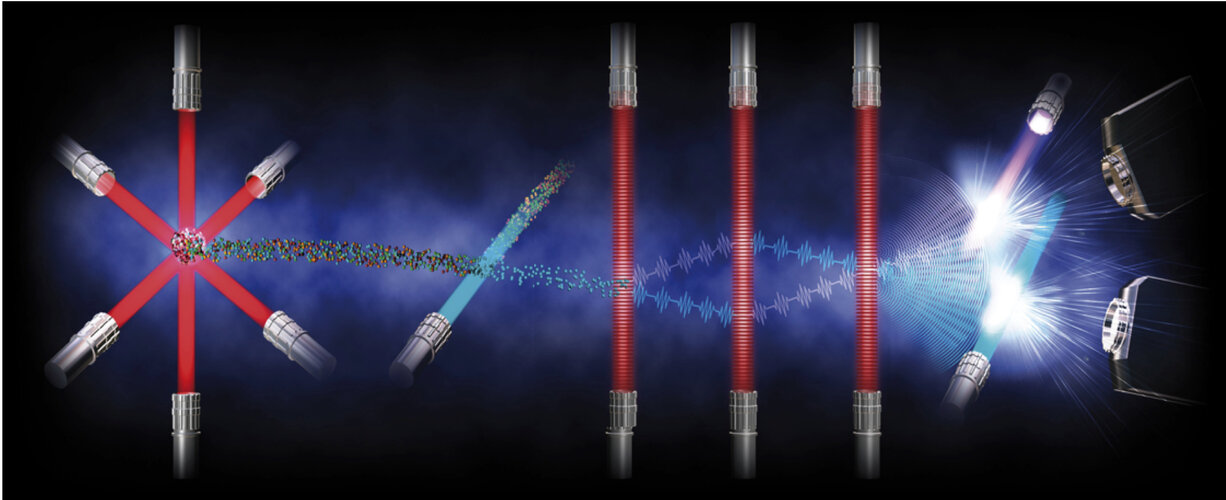
Copernical Team
Satellogic launches 4 Satellites on SpaceX Transporter-5 Mission
 Satellogic Inc. (NASDAQ: SATL), a leader in sub-meter resolution Earth Observation data collection, reports the launch of four additional satellites from Cape Canaveral Space Force Station.
They were delivered to a sun-synchronous low-Earth orbit on SpaceX's Transporter-5 mission on May 25, 2022 onboard the Falcon 9 reusable, two-stage rocket, under SpaceX's Rideshare program. All four sat
Satellogic Inc. (NASDAQ: SATL), a leader in sub-meter resolution Earth Observation data collection, reports the launch of four additional satellites from Cape Canaveral Space Force Station.
They were delivered to a sun-synchronous low-Earth orbit on SpaceX's Transporter-5 mission on May 25, 2022 onboard the Falcon 9 reusable, two-stage rocket, under SpaceX's Rideshare program. All four sat NASA Supports Small Business Research to power future exploration
 NASA has selected hundreds of small businesses and dozens of research institutions to develop technology to help drive the future of space exploration, ranging from novel sensors and electronics to new types of software and cutting-edge materials. The newly awarded projects under the agency's Small Business Innovation Research (SBIR) and Small Business Technology Transfer (STTR) program also
NASA has selected hundreds of small businesses and dozens of research institutions to develop technology to help drive the future of space exploration, ranging from novel sensors and electronics to new types of software and cutting-edge materials. The newly awarded projects under the agency's Small Business Innovation Research (SBIR) and Small Business Technology Transfer (STTR) program also Geology from 50 light-years away
 Baltimore MD (SPX) May 27, 2022
With its mirror segments beautifully aligned and its scientific instruments undergoing calibration, NASA's James Webb Space Telescope is just weeks away from full operation. Soon after the first observations are revealed this summer, Webb's in-depth science will begin.
Among the investigations planned for the first year are studies of two hot exoplanets cla
Baltimore MD (SPX) May 27, 2022
With its mirror segments beautifully aligned and its scientific instruments undergoing calibration, NASA's James Webb Space Telescope is just weeks away from full operation. Soon after the first observations are revealed this summer, Webb's in-depth science will begin.
Among the investigations planned for the first year are studies of two hot exoplanets cla Extraterrestrial civilizations may colonize the Galaxy even if they don't have starships
 Astronomers have searched for extraterrestrial civilizations in planetary systems for sixty years, to no avail. In the paper published by International Journal of Astrobiology, Cambridge University Press, and titled "Migrating extraterrestrial civilizations and interstellar colonization: Implications for SETI and SETA," Irina K. Romanovskaya proposes that the search for extraterrestrial intellig
Astronomers have searched for extraterrestrial civilizations in planetary systems for sixty years, to no avail. In the paper published by International Journal of Astrobiology, Cambridge University Press, and titled "Migrating extraterrestrial civilizations and interstellar colonization: Implications for SETI and SETA," Irina K. Romanovskaya proposes that the search for extraterrestrial intellig Set off on your next adventure with the Paxi collection

Set off on your next adventure with the Paxi collection
Paxi: the perfect friend for young explorers!
Why haven't we discovered co-orbital exoplanets? Tides may offer a possible answer

Solar Orbiter's pictures of the sun are every bit as dramatic as you were hoping

On March 26, the ESA's Solar Orbiter made its closest approach to the sun so far. It ventured inside Mercury's orbit and was about one-third the distance from Earth to the sun. It was hot but worth it.
The Solar Orbiter's primary mission is to understand the connection between the sun and its heliosphere, and new images from the close approach are helping build that understanding.
According to the ESA, the Solar Orbiter is the most complex scientific laboratory ever sent to the sun. It carries a robust suite of instruments, including a magnetometer, the Extreme Ultraviolet Imager, the Solar Wind Plasma Analyzer, and others. Its broad range of instruments allows it to observe solar events in multiple ways.
The spacecraft benefits from getting as close to the sun as it can. But close approaches make the Solar Orbiter hot. The spacecraft's first line of defense is its heat shield. It's a multi-layered titanium device mounted on a honeycomb aluminum support, with carbon fiber skins designed to shed heat. Between all that and the spacecraft's body, there are another 28 layers of insulation.
What the Voyager space probes can teach humanity about immortality and legacy

Voyager 1 is the farthest human-made object from Earth. After sweeping by Jupiter, Saturn, Uranus and Neptune, it is now almost 15 billion miles (24 billion kilometers) from Earth in interstellar space. Both Voyager 1 and its twin, Voyager 2, carry little pieces of humanity in the form of their Golden Records. These messages in a bottle include spoken greetings in 55 languages, sounds and images from nature, an album of recordings and images from numerous cultures, and a written message of welcome from Jimmy Carter, who was U.S. president when the spacecraft left Earth in 1977.
The Golden Records were built to last a billion years in the environment of space, but in a recent analysis of the paths and perils these explorers may face, astronomers calculated that they could exist for trillions of years without coming remotely close to any stars.
Taking climate monitoring into the future with quantum

Over the last decades, satellites measuring the many aspects of Earth have certainly demonstrated their worth with the information they yield to understand and monitor our environment and, importantly, to provide undeniable evidence of climate change for policymaking. While Europe is currently firmly placed as a world leader in Earth observation, it’s critical to stay ahead of the game by examining how even more sophisticated space technologies can be developed to return even more precise information in the future. Today, at ESA’s Living Planet Symposium, being held in Bonn, scientists dug deep into the potential of spaceborne quantum
Putting the future in FutureEO

With scientific excellence at the very heart of ESA’s FutureEO programme, participants at this week’s Living Planet Symposium have been making it clear that new research missions to advance Earth science must continue to be realised in the future.
